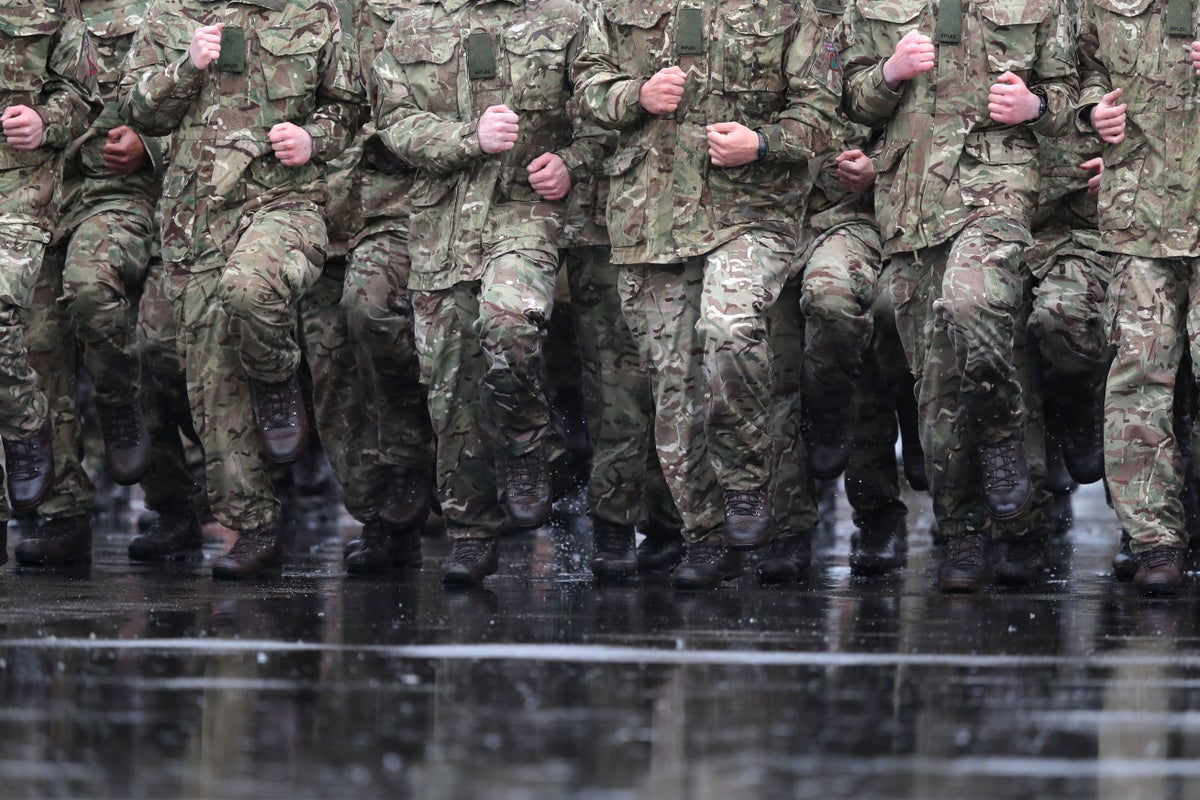
Army reservists could in future be asked to play a larger role in certain crises, according to a Government report, to end reliance on under-pressure armed forces.
The proposal is one of many in a report to re-think and reform the UK’s response to crises and comes after a two-year-long pandemic, growing concerns about climate change and global tensions following the war in Ukraine.
The 79-page report, launched by the Chancellor of the Duchy of Lancaster, was described as the “first articulation of how the UK Government will deliver on a new strategic approach to resilience”.
It warns that with the armed forces “facing pressure as risks multiply” at home and abroad, personnel “cannot be the first port of call whenever an emergency hits”.
Any changes would see the reserves play a “greater role” in military aid to the civil authorities (Maca) protocol operations and in other areas, with the report warning that the use of the armed forces for more routine tasks will be “an indication of policy failure”.
“The armed forces will continue to play a vital supporting role to the civil authorities in resilience, but will not be asked to take on an enhanced role,” according to the report.
The Government is preparing for strikes by ambulance drivers and Border Force staff, with military personnel on hand set to step in to mitigate some of the expected disruption.
Other plans in the report include an annual statement to Parliament on civil contingencies, as well as a new Head of Resilience to “guide best practice, encourage adherence to standards, and set guidance”.
A new UK Resilience Academy will also offer training and education on resilience planning, with plans also to expand advisory groups with experts, academics and industry figures to boost Government planning.
Chancellor of the Duchy of Lancaster Oliver Dowden said: “Resilience has long been part of the UK’s approach to national security, but in an increasingly integrated world in which we cannot predict or prevent all of the challenges ahead, we need to refresh our approach – that’s why we are making resilience a national endeavour, so that as a country we are prepared for the next crisis, whatever it may be.
“We have set out an ambitious plan and have already begun, strengthening accountability and transparency here in government and refreshing the way we assess national security risks.
“Our framework is a tool for local government, emergency services, charities and the public, to enable everyone to prepare for crises.”
Russia’s brutal invasion of Ukraine; the wide-ranging impacts of the Covid-19 pandemic; increasing signs of the impact of climate change; and constant and evolving cyber challenges are recent examples of an evolving threat picture— Chancellor of the Duchy of Lancaster, Oliver Dowden
A sub-committee from the National Security Council will also consider issues linked to resilience planning, chaired by Mr Dowden.
In his forward to the report, the Cabinet minister warned of an increasingly “volatile” world.
“These are unsettled and troubling times. Russia’s brutal invasion of Ukraine; the wide-ranging impacts of the Covid-19 pandemic; increasing signs of the impact of climate change; and constant and evolving cyber challenges are recent examples of an evolving threat picture.
“We live in an increasingly volatile world, defined by geopolitical and geoeconomic shifts, rapid technological change and a changing climate.
“This context means that crises will have far reaching consequences and are likely to be greater in frequency and scale in the next decade than we have been used to.
“We have a responsibility to prepare for this future.”
Elsewhere, the report says that Government communication during a crisis should be tailored for “diverse audiences”, with the Government noting that “risks do not impact communities equally across the UK”.
“We have seen that the impacts of Covid-19 had a disproportionate impact on ethnic minority and low income groups. Plans and preparations must reflect this and enable us to better plan, prepare, respond and recover from crises,” the report found.
The British Red Cross welcomed the report, with chief executive Mike Adamson calling it “positive” that it contained a focus on supporting those who might be vulnerable to various emergencies.
He said he looked forward to seeing further details, adding: “This framework needs to lead to improvement on the ground, and the beginning of a new approach to emergency response in the UK.”







